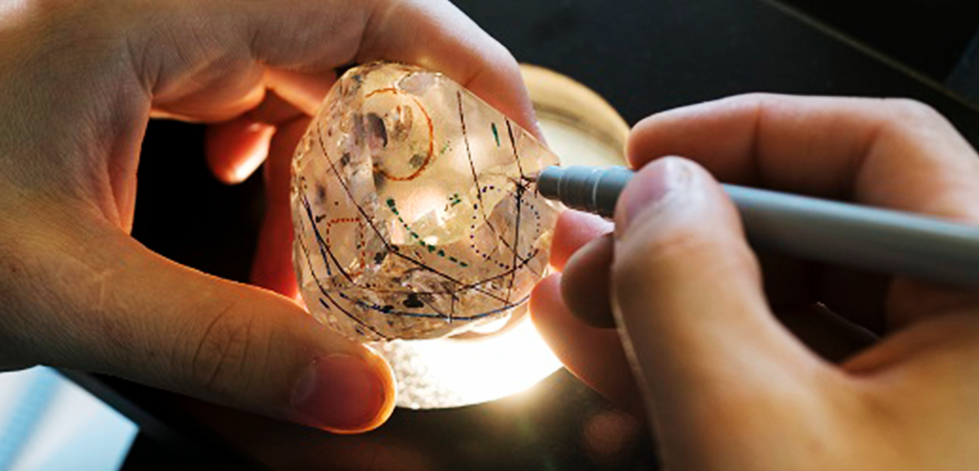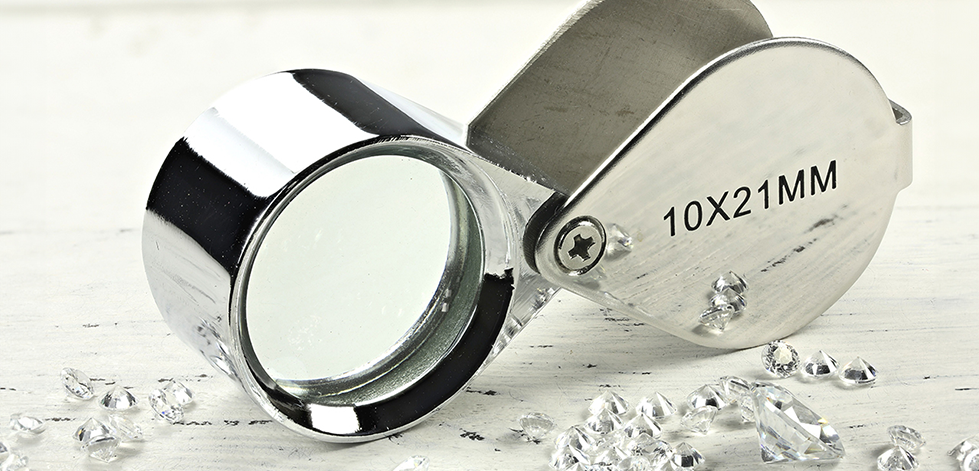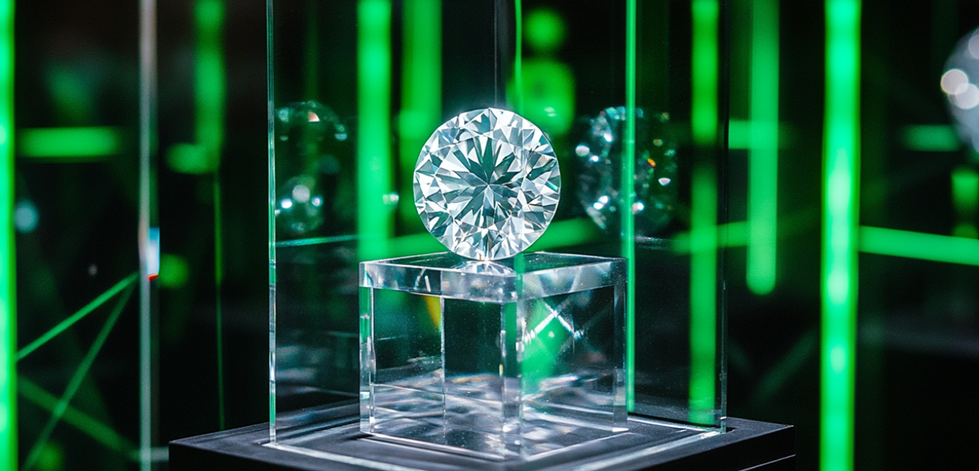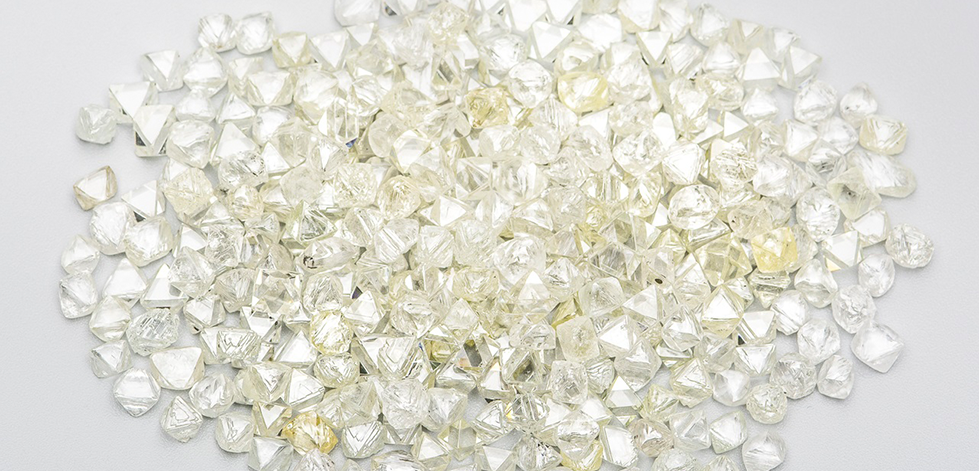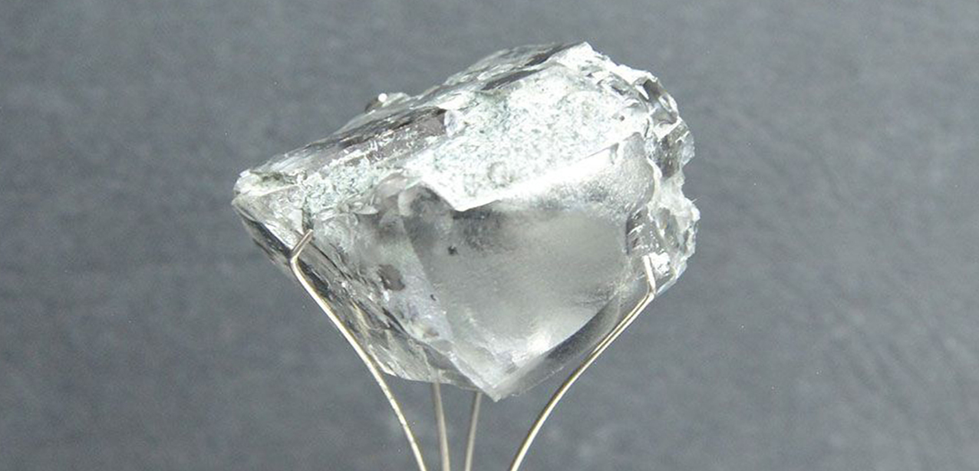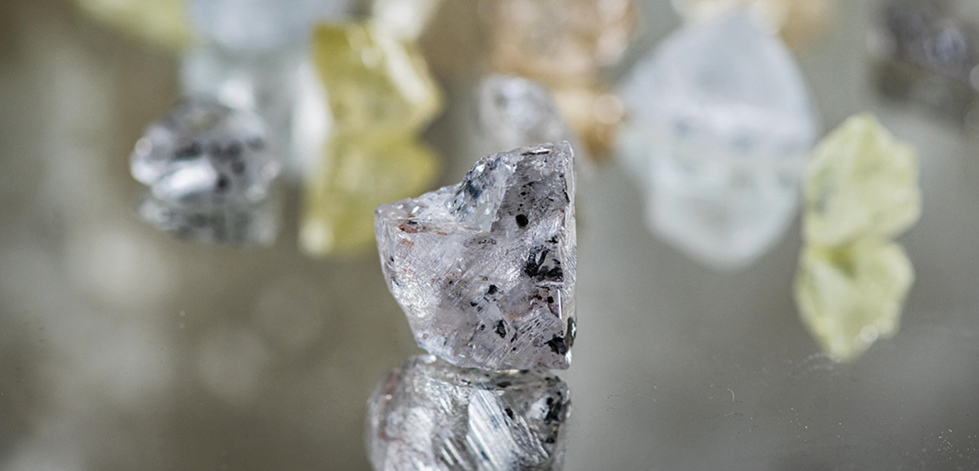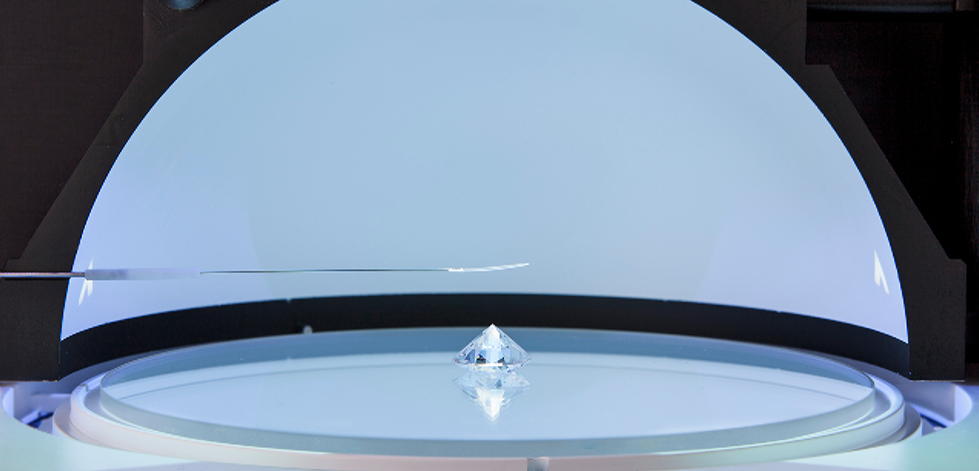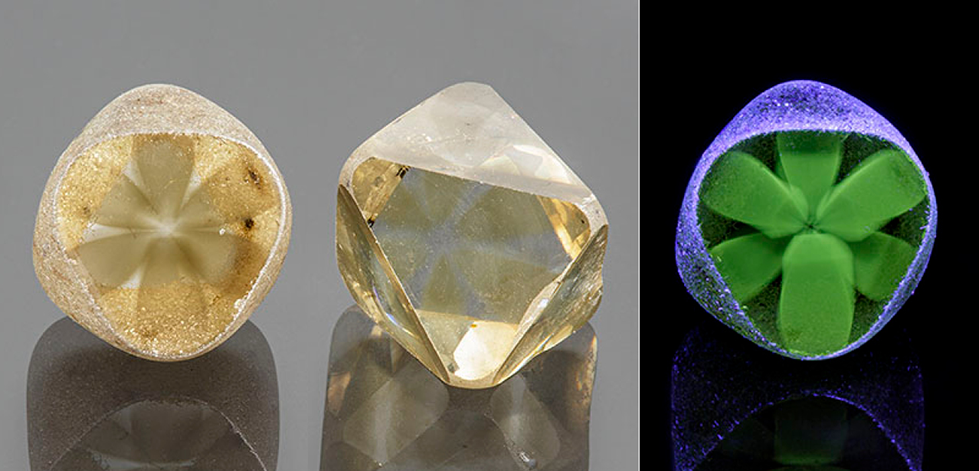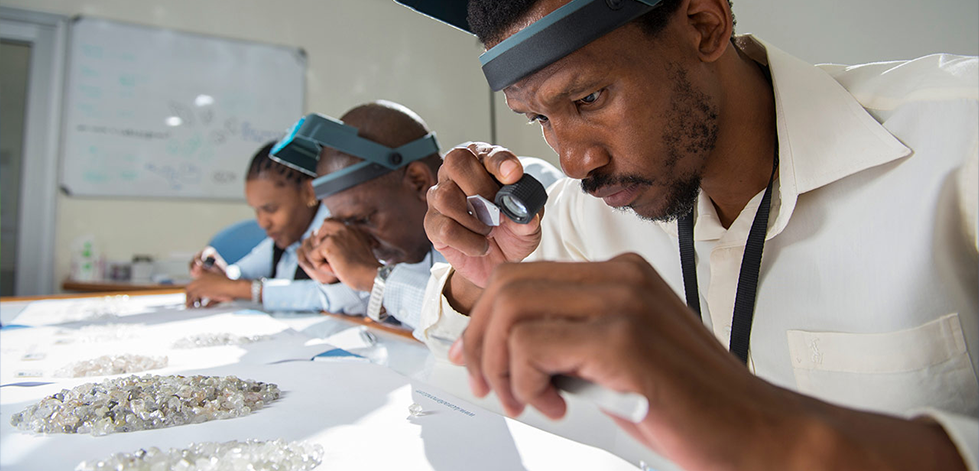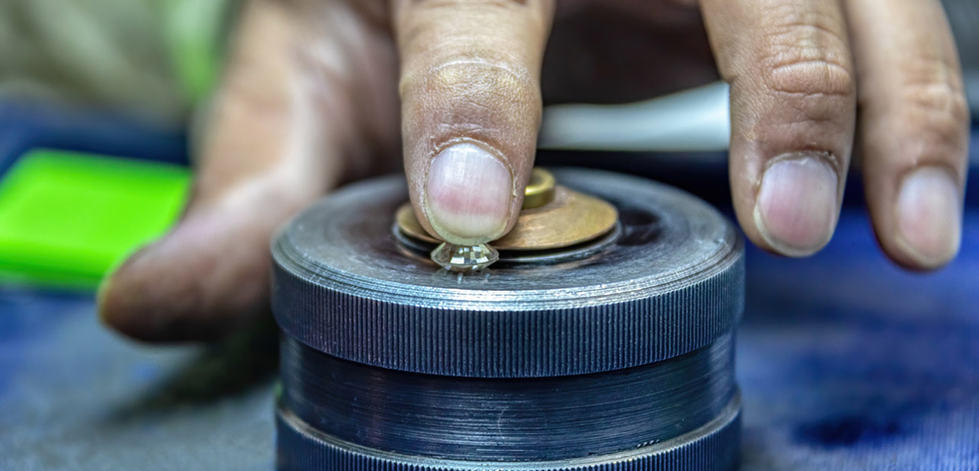How a 910ct. Rough Became a Sparkling Van Cleef Collection
The Baselworld fair has received much criticism in recent years, but one of the final shows before its public implosion appears to have facilitated a diamond deal that counts among the biggest in history.
Antwerp-based manufacturers Taché and Samir Gems came to the March 2018 exhibition with the exquisite Lesotho Legend, a 910-carat, type IIa diamond they had bought together from Gem Diamonds for $40 million earlier that month. At the time, jewelers such as Graff and Harry Winston dominated the big-stone market. Displaying the massive rough at the prestigious Swiss event could help drum up broader interest in the category, Taché and Samir believed.
“We felt that the market was a bit saturated between one or two players,” says Jean-Jacques Taché, managing director for sales at Taché, from his office in Tel Aviv, Israel. “So we thought, let’s bring it to Basel, let’s…showcase the [rough], and let’s see the reactions.”
Plenty of visitors wanted selfies with the stone, which came from the famous Letšeng mine in Lesotho. Some suggested buying a sliver of the piece — polished of, say, 5 to 20 carats, Taché recalls. However, “none of them were really committed at that point to enter into a venture.”
The exception was Van Cleef & Arpels, a Richemont-owned luxury brand that, Taché explains, had been somewhat pulling back from big stones in recent years.
“From the minute they saw it, [Van Cleef] started to talk about the idea that they had,” the executive adds. The timing was perfect: The luxury brand had just finished a ruby collection and was seeking a new project on which to spend a few years. “Sometimes you need a lot of things to happen at the same time in order to make it a success.”
The buying executive representing Van Cleef needed approval from Nicolas Bos, the brand’s CEO, and the Richemont team. Not long after the event, Taché, Samir and Van Cleef signed an agreement calling for the jeweler to buy the final polished. The condition was that the finished goods met the French house’s high quality criteria.
Long wait
Only this month did Van Cleef reveal the finished jewelry, more than four years after the initial pitch. The result was a unique collection of 25 Mystery Set jewels featuring 67 D-flawless diamonds. The largest is an oval, 79.35-carat stone that takes pride of place in a necklace called Atours Mystérieux, meaning “mysterious attire.” The smallest is 0.29 carats. The parties have not disclosed the polished sale price.
Taché and Samir both took heavy risks by splurging on the rough back in 2018. (Gem Diamonds publicly named Samir as the buyer: As is often the case, a miner only invoices one entity, but the purchase was really a 50:50 partnership.)
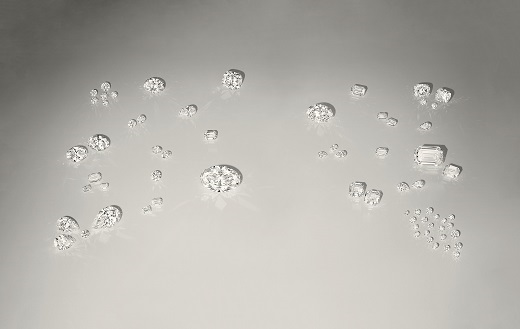
The two companies have a long-standing collaboration, having also bought the 341.9-carat Queen of Kalahari together from Lucara Diamond Corp. a few years earlier. They sold that polished to Chopard. Samir has its expertise in purchasing large rough stones; Taché specializes more in relationships with the top jewelry brands.
“We’re the most successful Jewish-Indian partnership on the market, by far,” says Taché.
They outsourced the cutting and polishing to Diamcad, an Antwerp firm that also manufactured the Lesedi La Rona for Graff. The goods went for grading at the Gemological Institute of America (GIA) in New York, where all the stones received Diamond Origin Reports stating that they were from the Lesotho Legend.
Van Cleef took delivery of the polished as each stone was ready between January 2019 and March 2020, Taché notes. However, Covid-19 delayed the launch, as Van Cleef had been hoping to hold roadshows.
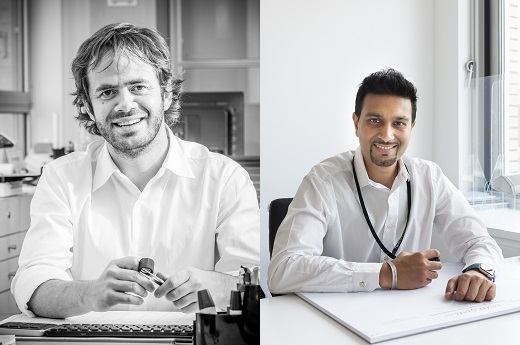
Quality over size
The manufacturers agreed to include Van Cleef throughout the process, including in the planning and design. The Taché and Samir teams even traveled with Van Cleef’s Bos to Lesotho in May 2019 to experience the Letšeng mine and learn about the local community there.
The brand would accept only flawless goods, so quality became a higher priority than size. The planning process, which took about seven months in 2018, saw the parties review around 180 possible combinations of outcomes. None of them included any “monster” stones, they note.
“Instead of 67 stones, you could also have a model with probably 12 pieces only, but [it would have been] much less interesting in terms of creation,” Taché continues.
There were other complicating factors. Van Cleef tends to avoid round and heart-shaped diamonds. It also wanted matching pairs: “Practically every stone in this collection between 10 and 30 carats is a couple,” he points out.
“If we went for something which was 100-carats-plus, we would have had to go into the VS range,” comments Antwerp-based Anjal Bhansali, managing director at Samir. The team even broke up a stone of roughly 75 carats into two matching stones weighing around 30 carats each, Bhansali reveals.
Boost for big stones
The manufacturers hope the collection will succeed in reinvigorating the large-diamond sector, expanding it beyond the traditional two giants.
“The goal is to create more awareness for big stones in the market and to bring in new players,” Taché concludes. “We started it with Chopard. We [are continuing] this now with Van Cleef.”
It’s unclear whether the Basel show will ever return. However, everyone involved in the Lesotho Legend project will agree that the 2018 edition was well worth it.
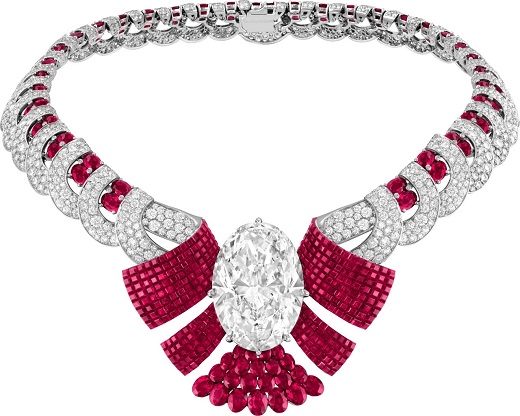
Images (top to bottom): The rough during planning; all 67 D-flawless polished diamonds; Jean-Jacques Taché (left) and Anjal Bhansali; the Atours Mystérieux necklace. (Ilan Taché; Taché; Van Cleef & Arpels)


